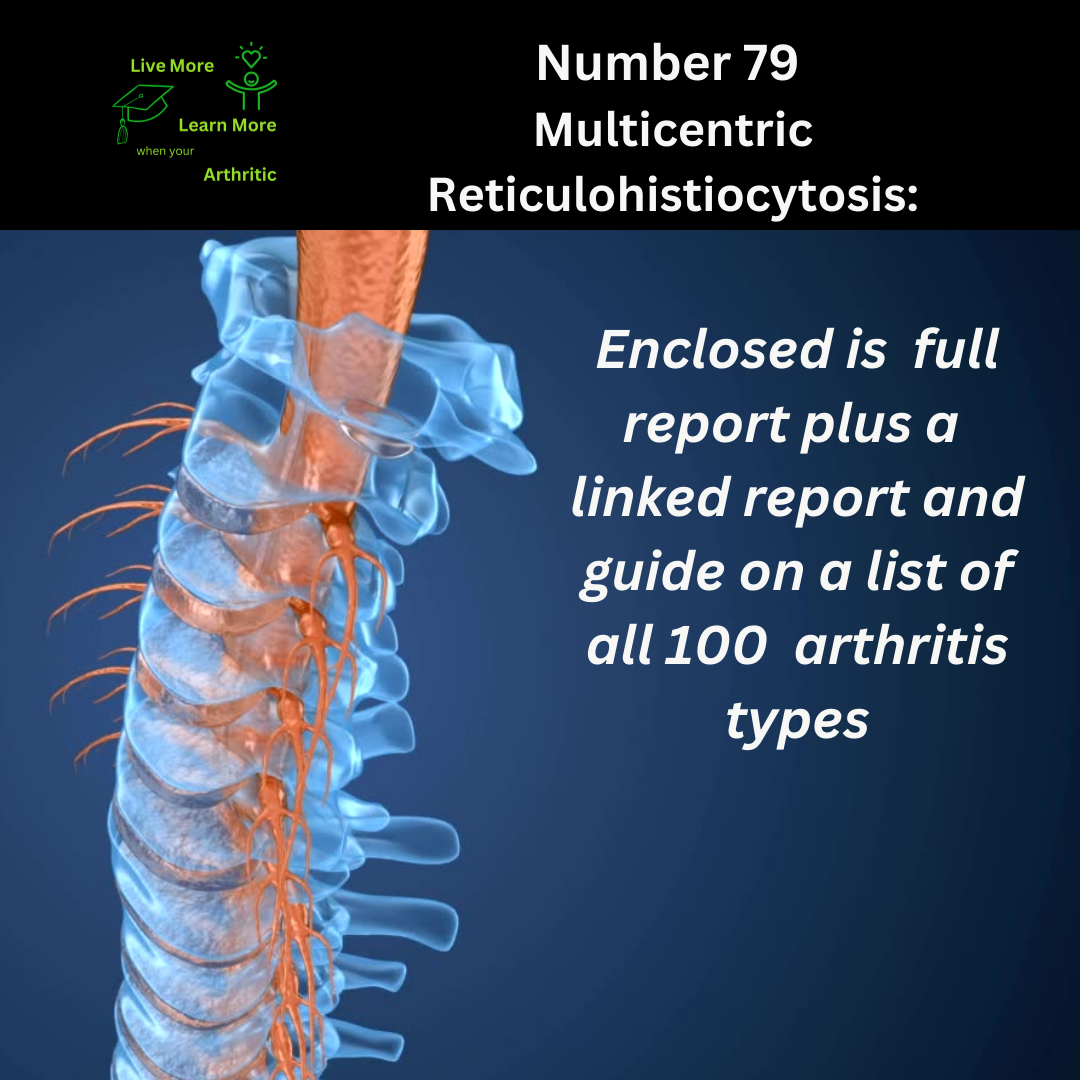
Multicentric Reticulohistiocytosis: Number 79 on the list of 100 types of Arthritis
Understanding Multicentric Reticulohistiocytosis: A Rare Arthritic Disorder
Multicentric Reticulohistiocytosis (MRH) is a rare and complex form of systemic inflammatory disease that primarily affects the joints and skin. This condition is characterized by the infiltration of certain immune cells called histiocytes into various tissues, leading to inflammation, joint destruction, and skin lesions. MRH falls under the category of non-Langerhans cell histiocytosis, a group of disorders involving abnormal immune cell behavior.
MRH manifests as a chronic and progressive illness marked by distinctive clinical features. The disease often presents with symmetrical polyarthritis (arthritis affecting multiple joints on both sides of the body) and papulonodular skin lesions. These lesions can vary in appearance and are typically found on the hands, elbows, knees, and other joints.
Causes and Triggers
The exact cause of MRH remains unknown, although it is believed to involve dysregulated immune responses. There may be genetic predispositions or environmental triggers, but no definitive associations have been established. Some researchers hypothesize that MRH could be linked to abnormal immune reactions triggered by infections or other stimuli.
Symptoms and Impact on Range of Motion
Common symptoms of MRH include joint pain, stiffness, swelling, and limited range of motion. The arthritis associated with MRH can be severely debilitating, leading to progressive joint destruction and deformities. Affected individuals often experience significant challenges in performing daily activities due to joint involvement.
Age of Onset and Prognosis
MRH typically affects adults between the ages of 40 and 60, although cases have been reported in younger individuals. The course of the disease varies widely, but it can lead to substantial disability if not managed effectively. In severe cases, MRH can potentially reduce life expectancy due to complications related to joint destruction and systemic inflammation.
Autoimmune Nature of MRH
While MRH shares some characteristics with autoimmune diseases, such as aberrant immune system activation, it is not classified as a conventional autoimmune arthritis like rheumatoid arthritis (RA). The specific immunological mechanisms underlying MRH are still being elucidated.
Improving Quality of Life through Proactive Measures
Managing MRH involves a multidisciplinary approach focused on symptom control and minimizing disease progression. Although no cure exists, proactive management strategies can significantly enhance quality of life. Physical therapy, joint protection techniques, and adaptive devices can help optimize function and mobility.
Possible Complications of MRH
Complications of MRH can include joint destruction leading to disability, skin ulcerations, and rarely, systemic involvement affecting organs such as the heart or lungs. The inflammatory nature of the disease can also impact overall health and well-being.
 Natural Breakthroughs and Health Advantages
Natural Breakthroughs and Health Advantages
Research into natural approaches for MRH management is limited, but certain lifestyle modifications like a balanced diet rich in anti-inflammatory foods, regular exercise within tolerance limits, and stress reduction techniques may complement conventional treatments and promote overall health.
Demographic Patterns and Gender Distribution
MRH affects both men and women, although it appears to be slightly more prevalent in women. The condition’s rarity makes precise epidemiological data challenging to ascertain.
Interconnected Diseases or Conditions
There are no established links between MRH and specific interconnected diseases or conditions. However, given its systemic nature, healthcare providers should remain vigilant for potential comorbidities and complications, especially those related to joint health and inflammatory processes.
In conclusion, Multicentric Reticulohistiocytosis presents a unique set of challenges for affected individuals, emphasizing the importance of comprehensive management strategies and ongoing research to improve outcomes and quality of life.


